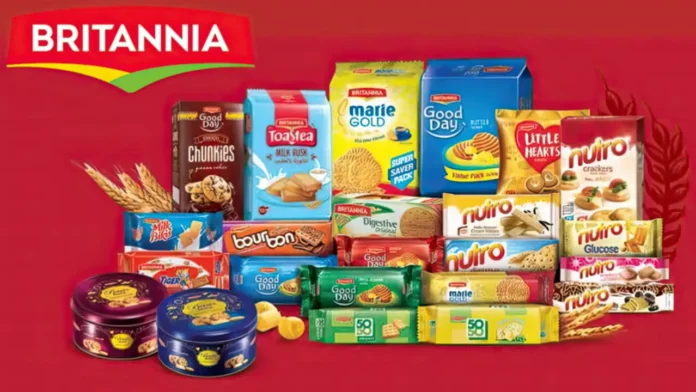Commodity prices may see an uptick post-elections, according to Britannia‘s Executive Vice-Chairman and Managing Director, Varun Berry. He noted that this increase could particularly affect wheat and sugar, key raw materials for the company. Nevertheless, Britannia aims to achieve double-digit volume growth, even if it results in a slight margin erosion.
“In terms of the commodity landscape, the wheat crop appears to be in good shape, with government reserves relatively low and anticipated government purchasing,” Berry informed analysts. “Looking ahead beyond the elections, I anticipate a slight inflationary trend. Following the elections and the monsoon season, our focus will be on achieving double-digit volume growth.”
The company led by Nusli Wadia has initiated a route-to-market project aimed at expanding into adjacent businesses while strengthening its core biscuits portfolio. In this new initiative, the company will prioritize aligning its services with high-potential retail outlets, deploying multiple salesmen, implementing AI-enabled predictive ordering, and enhancing salesforce automation. The pilot phase is scheduled for the second half of the current fiscal year and is expected to conclude within a year.
The manufacturer of Good Day biscuits expressed its readiness to accept a short-term margin reduction due to the various projects and endeavors aimed at ensuring the company’s future readiness.
Continue Exploring: Britannia ramps up distribution network, reaches 27.9 Lakh outlets in FY24
“We view this year as a period focused on top-line growth. If it entails a temporary margin decrease due to our various ongoing projects and initiatives, we’re willing to accept that. However, the impact won’t be significantly different from our current position. The ultimate goal is to ensure that we are well-prepared for the future,” Berry elaborated.
During the quarter ended in March, the largest biscuit manufacturer in the country recorded a 1.1% rise in sales alongside a 3.7% decline in net profit.
“Britannia and the FMCG sector are now past the worst, with a gradual recovery expected, fueled by a robust monsoon this year,” stated Abneesh Roy, Executive Director at Nuvama Institutional Equities. “Local players are poised to lose market share as the base effect normalizes and adjacent markets scale up.”
Over the past few years, indigenous brands have been gaining market share from major consumer goods companies, particularly in segments like soaps, detergents, hair oil, tea, and biscuits. For instance, the rusk market boasts approximately 2,500 local competitors, while more than 3,000 smaller or regional players control nearly 40% of the snacking segment. However, disruptions caused by the pandemic, coupled with inflation in essential raw materials, compelled many to either close down or scale back operations. Yet, in recent quarters, declining commodity prices have enabled smaller regional brands to expand operations and reduce prices.
Continue Exploring: Britannia eyes diversification into chocolates, salty snacks, and fresh dairy through joint ventures, unveils aggressive growth strategy
Britannia noted a surge in regional players attracted by the lucrative profit margins within the category, leading many to expand into states beyond their traditional markets. Consequently, local competitors faced heightened challenges in competing with national players, particularly in the general trade sector where larger players wield significant distribution influence.
“In organized trade, you can invest heavily and secure placements, but traditional trade presents its own challenges. Overextending in this regard can lead to product returns and other setbacks. Lately, as businesses expanded into new markets, they encountered mounting pressures. However, we’ve observed these market shares stabilizing recently,” noted Berry, emphasizing the importance of maintaining profits at a sustainable level. “Excessive expansion can open the door for new competitors to encroach on your territory.”





